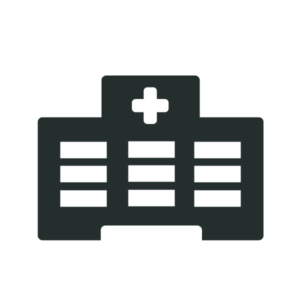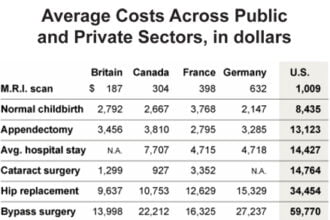In the last year, patient engagement has gone from buzzword to a clinically proven solution to rising healthcare costs. A study published in 2013 in Health Affairs found that engaged patients in the first year of the study were 8% less expensive that non-engaged patients in the base year. As the years progressed and the impact of some of the behaviors of non-engaged patients like diet, exercise, and smoking had a bigger impact, the gap was expected to widen.
In the last year, patient engagement has gone from buzzword to a clinically proven solution to rising healthcare costs. A study published in 2013 in Health Affairs found that engaged patients in the first year of the study were 8% less expensive that non-engaged patients in the base year. As the years progressed and the impact of some of the behaviors of non-engaged patients like diet, exercise, and smoking had a bigger impact, the gap was expected to widen. Cost drivers were use of emergency room services and hospitalization of these non-engaged patients.
At the same time, technology has been heralded as the solution for engaging patients, and the quantified self-movement was the poster child for tracking health metrics. The problem is that the people who were doing all this tracking were pretty engaged to begin with and therefore not representative of the population as a whole. Other solutions used rewards for behavior change, like gift cards or donations to favorite charities. Unfortunately, recent studies have shown that these types of rewards systems are good at enrolling patients in health engagement programs but not good at helping them sustain good habits.
 A combination of extrinsic and intrinsic rewards is seen to be much more motivating. Intrinsic rewards are the ones that are built directly into an experience, for example Facebook likes or Twitter retweets. We know from our experience at Wellpepper that a combination of intrinsic rewards coupled with the accountability through a connection with the healthcare provider creates more adherent patients and better outcomes. Our patient engagement rates hover around 70% (compared to 2-3% for some EHR portals), and we have some providers with patients who are 100% adherent to their treatment plans. Look for more news on this topic in the fall of 2014 when we release the results of some clinical studies that use Wellpepper.
A combination of extrinsic and intrinsic rewards is seen to be much more motivating. Intrinsic rewards are the ones that are built directly into an experience, for example Facebook likes or Twitter retweets. We know from our experience at Wellpepper that a combination of intrinsic rewards coupled with the accountability through a connection with the healthcare provider creates more adherent patients and better outcomes. Our patient engagement rates hover around 70% (compared to 2-3% for some EHR portals), and we have some providers with patients who are 100% adherent to their treatment plans. Look for more news on this topic in the fall of 2014 when we release the results of some clinical studies that use Wellpepper.
Technology for health-related behavior change is still in its infancy. However, with the right combinations of factors that motivate patients, the benefits are clear: better engagement and better outcomes. For patients, using technology for health engagement provides them with convenient and cost effective solutions. There are also benefits across the health system.
Using technology for patient engagement can enable:
- Remote care and monitoring. This covers both outpatient discharge and aging in place. Enabling people to recover or live at home longer improves their experience and lowers overall healthcare costs. New models of care are also possible as remote communication can employ specialists in different areas of the country or the world.
There is a nationwide shortage of such critical-care specialists, known as “intensivists,” so the idea is that these doctors can monitor more patients remotely than if they were on-site at a single hospital. USA Today
 Operating at the top of your license. Predicted shortages of primary care physicians due to an increased demand from more coverage and an aging population are not overstated. Technology that enables physicians to scale their abilities to cover patients by offloading some care and monitoring to other disciplines like nurse practitioners can help ease this burden.
Operating at the top of your license. Predicted shortages of primary care physicians due to an increased demand from more coverage and an aging population are not overstated. Technology that enables physicians to scale their abilities to cover patients by offloading some care and monitoring to other disciplines like nurse practitioners can help ease this burden.
“We use what we call Teamlettes. A group of people assigned to every patient. Administrative, clinical, psychiatric, all of us working at the top of our license, because there’s a lot of stuff done in medicine that can be done at other levels.” Mike Witte, Medical Director Coastal Health Alliance
- Patient-reported data. Patient-data is already in our systems, from patient interviews; however it’s inputted by healthcare professionals and relies on patient memory of previous events. Enabling patients to enter health data as they experience it can result in more accurate information and also a more efficient in-person visit as the healthcare professional and patient can review what’s been entered rather than trying to remember what happened over the course of several days or weeks between in-person visits.
“Patient-created, and patient-curated information is the key to the future. We need to build tools that are based on this assumption. They need to be in line with what consumers are accustomed to in other aspects of their lives and they need to work on mobile devices as well as the web.” Robert Rowley, MD
- Community support. Engaging community organizations in helping patients, is both beneficial and cost-effective. Community organizations and centers can play an active role in helping people manage their health. Enabling patients to have key health-related information with them outside the clinic can help professionals like fitness or diet coaches engage. Providing the patient with ways to engage around their health in a community setting can help encourage and foster new habits. Medicare is piloting a number of programs designed to increase community involvement and decrease readmissions.
- Managing groups of people. Websites like Patients Like Me and Ben’s Friends started as grassroots patient support groups facilitated by the vast reach of the Internet. If patients can meet and discuss their health, healthcare organizations should also be able to facilitate the management of people with similar issues. Technology can facilitate the ability to send similar treatment plans, communication, and tips to groups of people.
This is just the beginning of what’s possible. Technology advances will facilitate new ways of monitoring, communicating, and engaging that we haven’t even considered. We’re pretty excited about how engaging patients can improve outcomes and ultimately result in major positive changes in the health of countries and the way care is delivered. It’s still early days and patients, providers, insurers, and technologists are all still learning, but there is so much opportunity to have a real impact.







